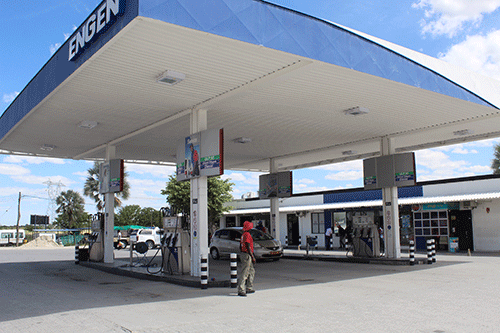ONGWEDIVA - A sharp rise in prices of essential commodities over the past few months, coupled with the latest burden of a steep hike in fuel rates, have made life difficult for almost every section of society across the country, with individuals and small businesses finding it hard to manage.
New Era engaged consumers to find out how people at the grassroots level are coping amidst rapidly increasing prices.
While the prices of vegetables and several other food items have gone skywards, the domestic petrol price increased from N$12.65 to N$17.15, while diesel increased from N$12.68 to N$17.28 per litre.
This represents an increment of N$4.50 and N$4.60 in petrol and diesel, respectively, within 12 months.
Tertu Timotheus, a vendor at the Ongwediva open market, said the situation has affected both consumers and vendors.
“Before the fuel price went up, we used to buy mopane worms from Zambian vendors. A can would normally then cost us N$30, but now we get them for N$50, and only sell them for N$40. The Zambian vendors also rarely travel to this side because of the fuel prices, which forced us to buy from local vendors, who sell them at ridiculous prices,” she
lamented.
Felix Gaspars, an entrepreneur who runs a tuck shop at the same open market, said the rising inflation has also hit small businesses hard.
“We don’t get customers anymore because people hardly travel or come for lunch to the market, because the taxi price has increased. The business has also gone down because I hire transport to go and get my stock. I spend over N$1 000 on fuel, while previously I only used to spend N$600,” he stressed.
The rising prices have hit almost everyone, whether it be a taxi driver, a vegetable seller by the roadside or any other consumer.
“We demand that the government reduces the fuel prices because we are struggling to survive. Customers don’t pay full prices for the taxi fare anymore. Instead of paying N$13, they only pay N$10 and we have no choice but to accept, or else we won’t make any income at all,” said Calvin Akwenye, a taxi driver.
He added that the rising fuel prices have squeezed his monthly income and have made a dent in his savings.
“I am not even able to save a penny because I have to work so far to make money for petrol, and the rest goes to the car owner. So, I make very little income,” Akwenye said.
Those who commute by car and have to fill up their vehicles’ tanks said they feel the higher prices more acutely than someone who works from home or uses public transport.
Others have also resorted to rather walk than drive to their destinations.
“My house is 10 km away from the mall, but I prefer to walk than take a taxi home. That saves a lot of money,” said Emma Shilunga, another resident.
Consumers may see costs rise even faster in the next few months, according to financial experts.
In an interview with New Era earlier this month, deputy energy minister Kornelia Shilunga warned that great financial sacrifices will have to be made at both the individual and national collective levels.
She said the country is indeed facing a tough and uncertain situation over the coming months, given what is currently happening in other parts of the world.
Consultations were initiated with the finance ministry and other State institutions deriving revenue from levies and taxes imposed on the price of petroleum products with the aim to soften the burden on ordinary Namibians.
At the end of March, the energy ministry announced that the consultations were already at an advanced stage, and were expected to be finalised during April.
Levies imposed on Namibian fuel prices include customs and excise duty for the SACU Revenue Pool; National Energy Fund Fuel Levy (comprising the fuel equalisation levy, Namcor levy, and National Oil Storage Facility levy), road user charges (which go to the Road Fund Administration (RFA) for roads maintenance; fuel tax, which is collected by the Ministry of Finance for the State Revenue Fund; and the Motor-Vehicle Accident (MVA) Fund levy, which is used to finance the activities of the MVA Fund, such as providing financial assistance to road accident victims.
- ashikololo@nepc.com.na


